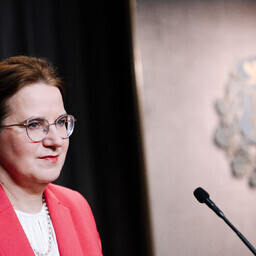The political parties in the Riigikogu submitted a vote of no confidence in the Minister of Justice and Digital Affairs, Liisa-Ly Pakosta. They accused her of the Public Prosecutor's Office not initiating criminal proceedings in the Pihlakodu case. They also criticized Pakosta for bringing 600 Swedish prisoners to Tartu.
Pakosta said that she does not intend to resign from her position. She rejected the false accusations made against her. "Unfortunately, I had to spend most of my time refuting falsehoods," she said.
One accusation was that Pakosta had not provided clarity on the Pihlakodu case. Pakosta explained that Estonia is a rule of law state. "Politicians cannot interfere in the work of the prosecutor's office. It is prohibited by law," she said.
Pakosta emphasized that the Pihlakodu case is a criminal proceeding. "The minister has the right to demand oversight, but must not interfere in the proceedings," she said. She added that she has done a lot of work to resolve the Pihlakodu case.
The chairman of the Center Party, Lauri Laats, criticized that the Public Prosecutor's Office did not initiate criminal proceedings. He said that under Pakosta's leadership, a system has been created where rapes go unpunished.
Pakosta responded that she was not the minister when the rapes occurred at Pihlakodu. "The suspect has been brought to court. If new evidence emerges, we will deal with it," she said. She called on people to report crimes to the police if they witness them.
Pakosta emphasized that every rape causes health damage. She said that she has initiated measures for better control of care homes.
The second accusation concerned the Tartu prison lease agreement. The opposition accused Pakosta of endangering Estonia's security. Pakosta rejected this. She said that the opposition parties themselves were in favor of the lease agreement.
Pakosta said that Tartu prison is empty and its maintenance costs a lot of money. "Bringing in foreign prisoners creates jobs and saves money," she said. She emphasized that security risks have been assessed and mitigated.
Pakosta added that Tartu prison is internationally recognized. "Estonia is a safe country and our prison system is effective," she said. She said that the prison should be utilized and people should not be frightened.

